
Trump can’t decide if he had a ‘good’ or ‘sad’ day at 2020 election arraignment
Donald Trump couldn’t seem to decide whether he had a “good day” or a “sad day” as he was arrested and arraigned on four criminal charges over his attempts to overthrow the 2020 presidential election. The former president appeared in court in Washington DC on Thursday afternoon, where he pleaded not guilty to all charges in what now marks his third criminal case. Following the arraignment, he returned to his Bedminster estate and took to Truth Social where, he claimed – in a full-caps late-night rant – that he had a “very good day”. “CONSIDERING THE FACT THAT I HAD TO FLY TO A FILTHY, DIRTY, FALLING APART, & VERY UNSAFE WASHINGTON, D.C., TODAY, & THAT I WAS THEN ARRESTED BY MY POLITICAL OPPONENT, WHO IS LOSING BADLY TO ME IN THE POLLS, CROOKED JOE BIDEN, IT WAS A VERY GOOD DAY!” he wrote on Truth Social. However, this positive outlook appears to jar with the mood he displayed on the tarmac as he jetted out of DC on his private plane – not to mention the mood sources said he displayed behind the scenes. “This is a very sad day for America,” Mr Trump told reporters as he embarked Trump Force One to head back to his Bedminster club. “It was also very sad driving through Washington DC and seeing the filth and the decay and all of the broken buildings and walls and the graffiti. “This is not the place that I left. It’s a very sad thing to see it.” His comments on Washington DC’s apparent deterioration came after Mr Trump left the capital in January 2021 as it was reeling from the January 6 Capitol riots – an attack which came out of the false claims he spread of 2020 election fraud. Meanwhile, sources behind the scenes of Thursday’s hearing revealed a somewhat “dejected” mood. The former president was said to be “irked” that US District Judge Moxila Upadhyaya had referred to him as “Mr Trump” and not “Mr President” during his court appearance. “I’m learning tonight that Trump left here in a sour and dejected mood,” said CNN host Kaitlan Collins. “He was, quote, ‘pissed off,’ according to someone who spoke to him.” She added: “I am told that the former president, one thing that irked him particularly, was during that hearing today that lasted about 27 minutes, was when the magistrate judge referred to him as simply ‘Mr Trump.’” Mr Trump’s alleged annoyance comes as the staff at his Mar-a-Lago and Bedminster estates typically still refer to him as “President Trump” – despite leaving the White House over two years ago. “That may not sound odd to anyone else, but he is still referred to by his former title ‘President Trump’ when he’s at his Bedminster golf club in New Jersey, as he is tonight, or at Mar-a-Lago,” revealed Ms Collins. Instead of being waited on by his staff and called “Mr President”, Mr Trump was forced to endure a court appearance similar to that of many criminal defendants. He had to wait around 15 minutes for the judge to arrive and came face to face with prosecutors pursuing charges against him – at one point having something of a stare off with special counsel Jack Smith in the courtroom. However, in other ways his treatment was different – as he did not have his mugshot taken and was not placed in handcuffs. Mr Trump surrendered to authorities and was arrested on four federal charges of conspiracy to defraud the United States, conspiracy to obstruct an official proceeding, obstruction of and attempt to obstruct an official proceeding, and conspiracy against rights. He then appeared for his arraignment at the E Barrett Prettyman Federal Courthouse where he stared down special counsel Jack Smith before pleading not guilty to all charges. The former president is accused of conspiring with his allies to overturn the 2020 election, in a bid to sabotage the vote of the American people. A grand jury, which has spent months hearing evidence in special counsel Jack Smith’s investigation, returned a federal indictment on Tuesday hitting him with four federal charges. The Justice Department alleges that Mr Trump and his circle of co-conspirators knew that he had lost the election but launched a multi-prong conspiracy to do everything they could to enable him to cling to power. This included spreading “knowingly false claims of election fraud to get state legislators and election officials to subvert the legitimate election results and change electoral votes for the Defendant’s opponent, Joseph R. Biden, Jr., to electoral votes for the Defendant”, the indictment states. Mr Trump and his allies also allegedly plotted to send slates of fake electors to seven “targeted states” of Arizona, Georgia, Michigan, Nevada, New Mexico, Pennsylvania and Wisconsin which President Joe Biden had won – to get them to falsely certify the election for Mr Trump. The indictment also alleges Mr Trump tried to use the DOJ to “conduct sham election crime investigations”, sending letters to the seven states claiming that “significant concerns” had been found in the elections in those states. As well as the false claims about the election being stolen from Mr Trump, the scheme also involved pushing false claims that Vice President Mike Pence had the power to alter the results – and pushing Mr Pence to “fraudulently alter the election results”. When Mr Trump’s supporters stormed the US Capitol in a violent attack that ended with five deaths, Mr Trump and his co-conspirators “exploited” the incident by “redoubling efforts to levy false claims of election fraud and convince Members of Congress to further delay the certification based on those claims,” the indictment claims. At a press conference on Tuesday, Mr Smith placed the blame for the January 6 attack on the US Capitol firmly on Mr Trump’s shoulders. “The attack on our nation’s capitol on January 6, 2021, was an unprecedented assault on the seat of American democracy,” he said. “As described in the indictment, it was fueled by lies. Lies by the defendant targeted at obstructing a bedrock function of the US government – the nation’s process of collecting, counting and certifying the results of the presidential election.” The indictment marks Mr Trump’s second federal indictment, his third criminal indictment overall – and potentially his most serious. While the former president is the only person charged in the case, the indictment also refers to six co-conspirators who worked with him to try to overturn the 2020 presidential election. The six individuals – four attorneys, one Justice Department official and one political consultant – have not been named in the charging documents because they have not yet been charged with any crimes. However, based on the details in the indictment and records already known about the events leading up to the Capitol riot, the identities are apparent as Rudy Giuliani, Sidney Powell, John Eastman, Jeffrey Clark, Kenneth Chesebro and Boris Epshteyn. This marks Mr Trump’s third indictment after he was hit with New York state charges following an investigation into hush money payments made prior to the 2016 election and then separate federal charges over his alleged mishandling of classified documents on leaving office. He has pleaded not guilty in both of those charges as well. Read More Live updates: Trump pleads not guilty at arraignment in 2020 election case Meet Jack Smith: The special prosecutor who could take down Trump Trump appears to stumble over his name and age at arraignment Watch: Donald Trump’s motorcade blocked by herd of goats Chairman of UK Republican group wishes Donald Trump would not run for president Will Trump’s alleged co-conspirators in the Jan 6 indictment turn on him?
1970-01-01 08:00
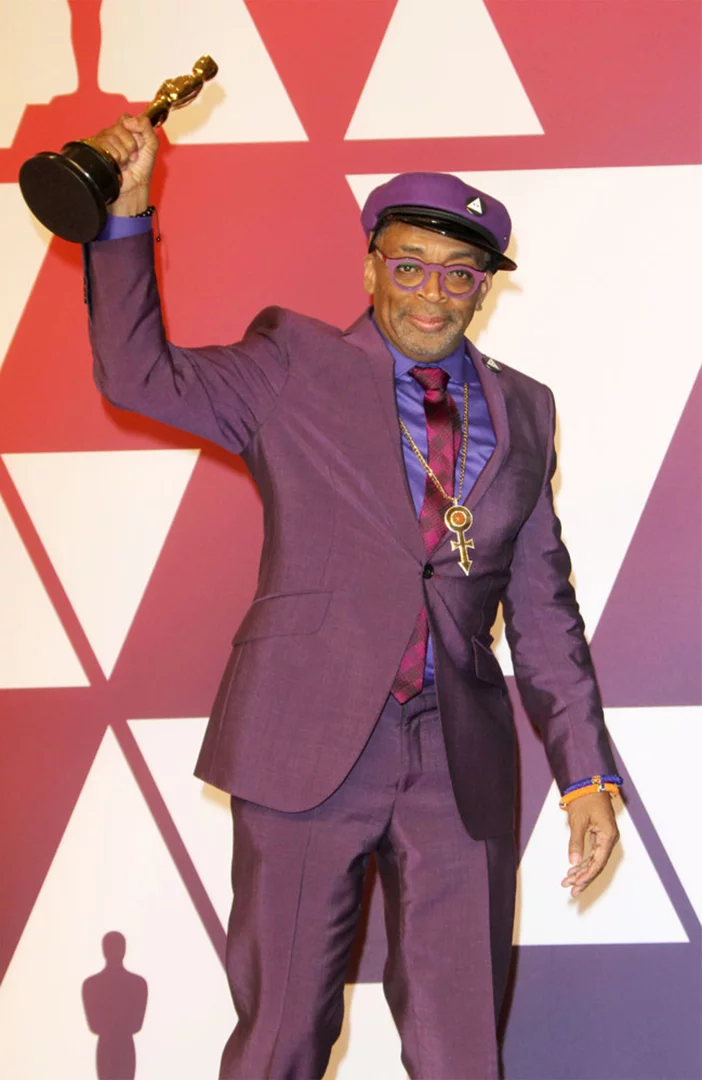
Spike Lee and Pedro Almodóvar are first honourees announced for 2023 TIFF Tribute Awards
Groundbreaking and Oscar-winning filmmakers Spike Lee and Pedro Almodóvar are the first honourees announced for this year’s TIFF Tribute Awards.
1970-01-01 08:00
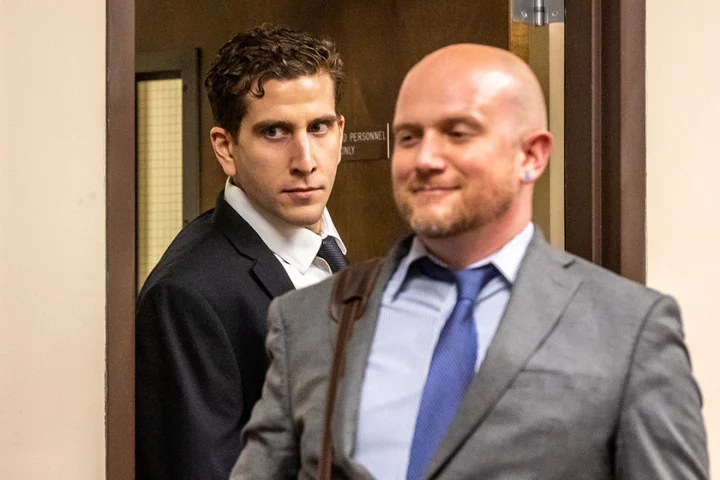
Bryan Kohberger finally reveals vague alibi for night of Idaho murders
Bryan Kohberger has finally offered up a vague alibi for his movements on the night that he is accused of brutally stabbing four University of Idaho students to death in their beds. The 28-year-old criminal justice PhD student claims that he was out on a solo drive throughout the night of 12 November and into the early hours of 13 November – but admits that there are no witnesses to back up his version of events. “Mr. Kohberger has long had a habit of going for drives alone. Often he would go for drives at night,” his attorney Anne Taylor wrote in a new court filing. “He did so late on November 12 and into November 13, 2022. Mr. Kohberger is not claiming to be at a specific location at a specific time; at this time there is not a specific witness to say precisely where Mr. Kohberger was at each moment of the hours between late night November 12, 2022 and early morning November 13, 2022. “He was out, driving during the late night and early morning hours of November 12-13, 2022.” The claims about Mr Kohberger’s unusual nighttime habits – and his whereabouts on the night of the murders – come after prosecutors demanded that his legal team reveal his alibi ahead of his October trial. Under Idaho law, defendants have 10 days to provide a written statement about where they claim to have been at the time of the alleged crime and offering information about any witnesses who can support their claim. On 23 May – one day after he was arraigned on four murder charges – Latah County Prosecutor’s Office put in a demand for Mr Kohberger’s notice of alibi. Back then, Mr Kohberger’s legal team asked Judge John Judge for an extension, saying that they needed more time due to the wealth of evidence in the high-profile case, and the deadline was extended to 24 July. But the deadline came and went, with Mr Kohberger’s legal team hinting that he has evidence placing him in another location at the time of the murders – but stopping short of revealing where and instead saying it may come to light at trial. The prosecution subsequently filed a motion seeking to compel an alibi. While Mr Kohberger’s attorney said that there is no specific witness to say where he was throughout the time of the murders, she wrote in the new filing that she anticipates “corroborating witnesses” will back up his explanation at trial. Mr Kohberger is facing the death penalty over the brutal 13 November murders of Madison Mogen, Kaylee Goncalves, Xana Kernodle and Ethan Chapin. He is due to stand trial on 2 October after being indicted by a grand jury on four counts of first-degree murder and one burglary charge. His explanation that he was out on a solo drive that night comes as prosecutors tied him to the murders, in part, through surveillance footage showing his white Hyundai Elantra travelling to and from the crime scene. The affidavit, released in January, outlined some of the evidence against the accused killer – including his DNA on a knife sheath left behind at the scene of the murders, the surveillance footage and cellphone activity. The sheath – for a military or Ka-Bar style knife – was found partly under Mogen’s body after she and Goncalves were found stabbed multiple times on Mogen’s bed on the third floor of the home. DNA on the button clasp of the sheath was then found to match that of the 28-year-old accused killer. Mr Kohberger’s attorneys have sought to cast doubts on the strength of this DNA evidence, in particular the use of genetic genealogy. According to the affidavit in the case, the FBI used genetic genealogy databases to try to identify the DNA source. Trash was then collected from the suspect’s parents’ home in the Poconos Mountains and a familial match – from Mr Kohberger’s father – was made to the sheath, according to the criminal affidavit. Following Mr Kohberger’s arrest on 30 December, DNA samples were then taken directly from the suspect and came back as “a statistical match”, say prosecutors. Mr Kohberger is accused of breaking into an off-campus student home on King Road in the early hours of 13 November and stabbing the four students to death with a large, military-style knife. Two other female roommates lived with the three women at the property and were home at the time of the massacre but survived. One of the survivors – Dylan Mortensen – came face to face with the masked killer, dressed in head-to-toe black and with bushy eyebrows, as he left the home in the aftermath of the murders, according to the criminal affidavit. For more than six weeks, the college town of Moscow was plunged into fear as the accused killer remained at large with no arrests made and no suspects named. Then, on 30 December, law enforcement suddenly swooped on Mr Kohberger’s family home in Albrightsville, Pennsylvania and arrested him for the quadruple murders. The motive remains unknown and it is still unclear what connection the WSU PhD student had to the University of Idaho students – if any – prior to the murders. The murder weapon – a fixed-blade knife – has still never been found. As a criminal justice PhD student at WSU, Mr Kohberger lived just 15 minutes from the victims over the Idaho-Washington border in Pullman. He had moved there from Pennsylvania and began his studies there that summer, having just completed his first semester before his arrest. Before this, he studied criminology at DeSales University – first as an undergraduate and then finishing his graduate studies in June 2022. While there, he studied under renowned forensic psychologist Katherine Ramsland who interviewed the BTK serial killer and co-wrote the book Confession of a Serial Killer: The Untold Story of Dennis Rader, the BTK Killer with him. He also carried out a research project “to understand how emotions and psychological traits influence decision-making when committing a crime”. Read More Bryan Kohberger claims DNA may have been planted at Idaho murders scene – as alibi deadline looms Bryan Kohberger defence hints at alibi in Idaho murders - but won’t reveal what it is as deadline passes Bryan Kohberger could face the firing squad for the Idaho murders. What would this mean?
1970-01-01 08:00
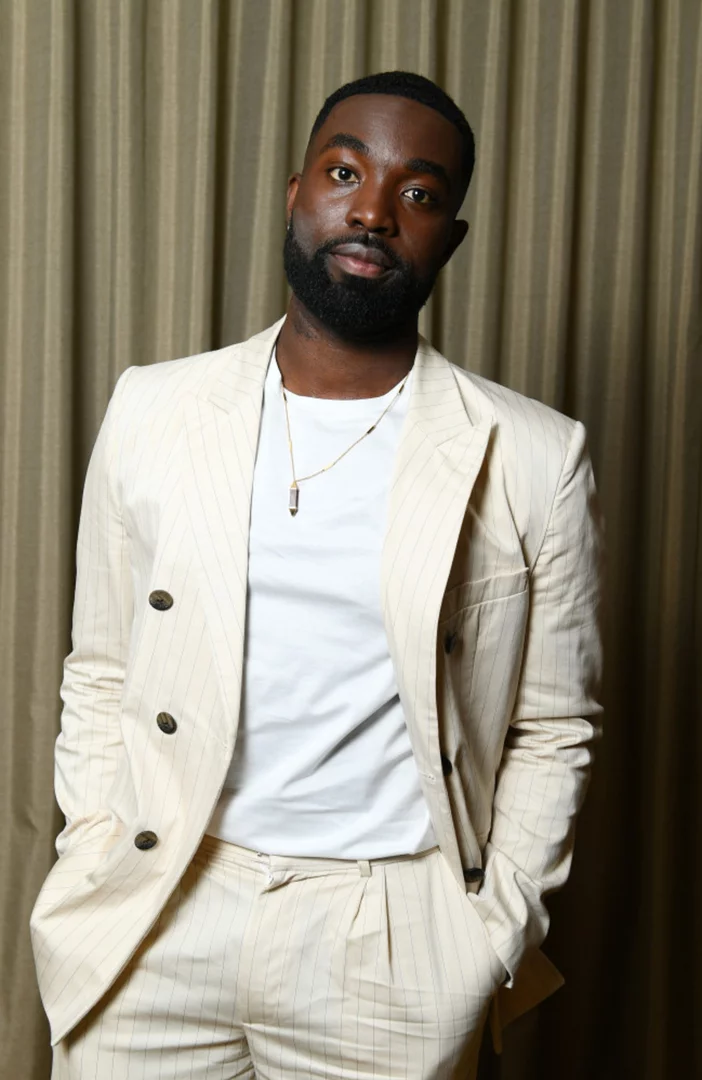
Paapa Essiedu warns film fans not to bet on him being next 007!
As speculation over who will be named the next James Bond reaches fever pitch, Paapa Essiedu is warning film fans not to bet on him being cast as the super-spy.
1970-01-01 08:00
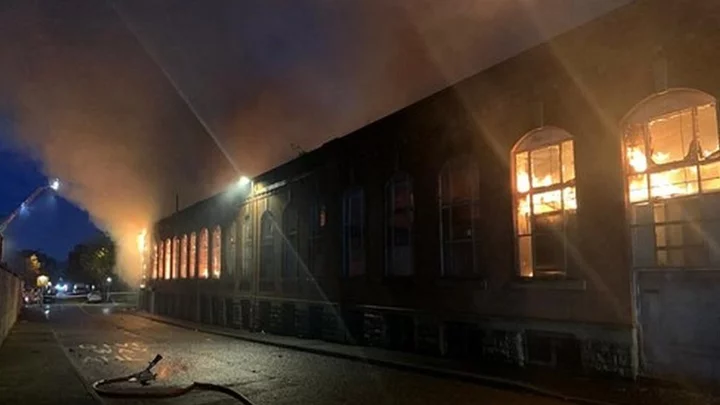
Oldham mill fire: Remains of men killed in blaze repatriated
The remains of four Vietnamese nationals were discovered after the huge blaze in Oldham.
1970-01-01 08:00
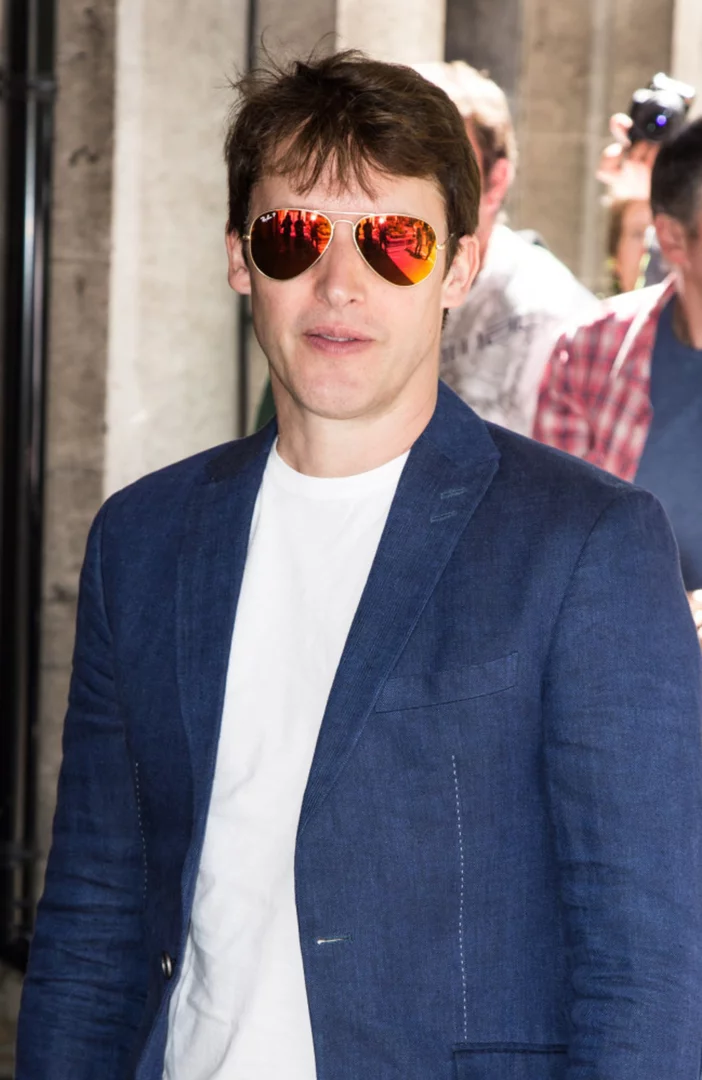
James Blunt to release Carrie Fisher tribute song Dark Thought
James Blunt wanted to release the song while Carrie Fisher was still alive.
1970-01-01 08:00
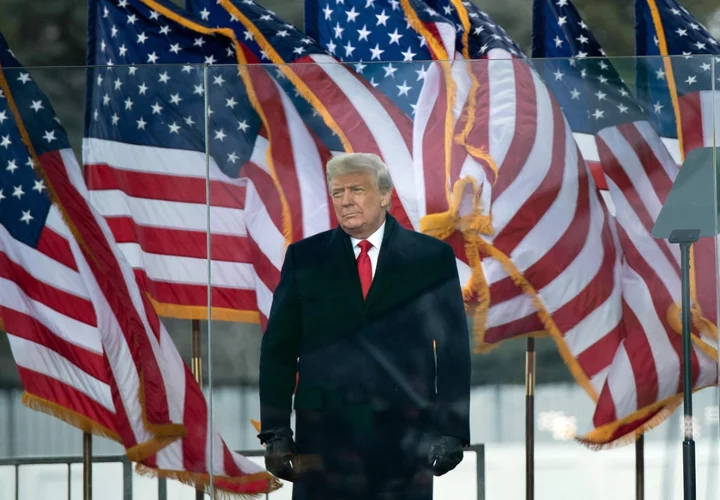
Donald Trump’s latest indictment is a test for America
The latest case of United States of America v Donald J Trump strikes at the heart of a question that has clouded the former president’s time in and out of office: Can he unequivocally lie and use that deceit to influence the outcome of a democratic election, against the will of millions of Americans? An indictment against the former president for his very public plot to overturn the 2020 presidential election is remarkable in that it is not only his third criminal indictment within four months, a historic precedent for this or any former or current president in US history. It also chronicles the alleged actions of a sitting president on his way out to bring American democracy down with him. Mr Trump already is criminally charged in New York City in a case connected to hush money payments to silence stories of his alleged affairs in the lead up to his 2016 election. The US Department of Justice also has charged him with his alleged retention of classified documents after leaving the White House. But the indictment unsealed on 1 August outlines a graver threat. Michael Waldman, president of the Brennan Center for Justice at NYU Law, said the charges “matter beyond the fact that a former president is accused”. “Donald Trump and his co-conspirators tried to overthrow American democracy. They wanted to negate the votes of millions of Americans. They did this using phony claims of voter fraud and rigged elections. These conspiracy theories are still being used to justify changes to voting and election law all over the country. Donald Trump will stand trial,” he said in a statement to The Independent. “The Big Lie will be on trial too.” The indictment outlines the familiar contours of a conspiracy-driven scheme and the violence that followed it, a narrative that members of Congress investigated for more than a year before publishing an 845-page report detailing Mr Trump’s refusal to cede power, regardless of the outcome. That report and countless investigations into the events surrounding January 6 have painted the attack on the Capitol as part of a much-larger effort to preserve a fragile American democracy. Unlike the other indictments against him, the latest charges amount to accusations of crimes committed by a man who president when he allegedly committed them. For months leading up to the 2020 presidential election, then-President Trump routinely and publicly undermined the legitimacy of an election that hadn’t even happened yet, sowing doubt about whether Americans’ votes would be counted at all. But as the indictment alleges in a detailed, chronological accounting of the scheme, the former president was routinely made aware that his statements were false – by two attorneys general, Justice Department officials, an election security chief, his vice president, his campaign, and Republican governors and election officials who voted for and endorsed him. According to the indictment, one senior adviser said the campaign’s legal team “can’t back any” of the former president’s claims. “I’ll obviously hustle to help on all fronts, but it’s tough to own any of this when it’s all just conspiracy s*** beamed down from the mothership,” the adviser wrote, according to prosecutors. Federal prosecutors outlined what, allegedly, happened next, when it became clear Mr Trump was losing: Then-President Trump and his allies conspired with officials in states that he lost to invalidate ballots and use fraudulent electors to cast their electoral college votes on his behalf, relied on the Justice Department to force the plan through, and pressured his vice president to go along with it, before exploiting the violent disruption in the halls of Congress to make another last-ditch attempt to reject the outcome. “It was an attempt to usurp from the people our right to choose our own leaders, our own president, through the electoral college system,” according to Democratic US Rep Jamie Raskin, who served as the lead impeachment manager for Mr Trump’s second impeachment for the events surrounding January 6. “They’re very grave and serious charges, of course, but extremely well anchored in the facts,” he told MSNBC. The resulting four-count indictment accuses the former president of committing three criminal conspiracies while he was still in office. Mr Trump is accused of a conspiracy of “dishonesty, fraud, and deceit” to “impair, obstruct, and defeat” the process of collecting and certifying votes in the states, a conspiracy to obstruct the certification of those votes in Congress, and a conspiracy to deprive the right to vote and have one’s vote counted, a violation of long-standing civil rights law first enacted in the violent aftermath of the Civil War. The indictment also lists six unnamed co-conspirators who are likely to include Trump-connected attorneys and government officials. Mr Trump relied on his “prolific” lies to help organize fake electors in several states to submit false vote certificates to Congress, positioning Mike Pence to oversee a fraudulent certification of those bogus slates of electors on 6 January, 2021, the indictment alleges. The former president also allegedly leveraged the Justice Department to advance the scheme; at one point in the indictment, prosecutors suggest that the Trump administration was willing to deploy the military to crush opposition to his election, if he were to successfully overturn Mr Biden’svictory. Three days before January 6, a co-conspirator believed to be Justice Department official Jeffrey Clark spoke with a deputy White House counsel who had previously warned Mr Trump that “there is no world, there is no option, in which you do not leave the White House”. “Well,” Mr Clark allegedly replied, “that’s why there’s an Insurrection Act.” Following the hours-long siege at the Capitol on January 6, a violent show of force fuelled by Mr Trump’s baseless narrative, his aides and co-conspirators exploited that chaotic delay to pressure Congress to refuse the results for a final time. “We are talking about democracy on the brink, as you read through this indictment,” Alyssa Farah Griffin, a former White House communications director under then-President Trump, told CNN. “It shows how close we got.” The charges are unprecedented in their scope, but the tools to prosecute election interference and voter fraud conspiracies that have deprived Americans’ rights have been in place for more than a century. “Our democracy and our legal system are actually prepared to deal with these kinds of unprecedented situations,” Sean Morales-Doyle, director of the Brennan Center’s voting rights and elections programme, told The Independent. “I think the history is important, because we’re also not at the end of history here.” While he ultimately failed in his efforts, Mr Trump’s narrative of victimisation and “stolen” elections has infected a wide swath of the American public, particularly Republican officials and their supporters. Mr Trump’s rhetoric has persuaded roughly three in 10 Americans to believe the lie that the election was stolen from him. His false and inflated claims, spanning more than a decade, have sowed enough doubt among his supporters to construct the lie of “stolen” and “rigged” elections, animating Republican attempts to challenge results and craft dozens of pieces of legislation to do what Mr Trump failed to do in court and while in office. Since leaving office, the former president has continued a narrative of political persecution as he seeks the 2024 Republican nomination for president, with a reliable mention of “stolen” or “rigged” election in his fundraising messages, on his Truth Social, and on the stages of political conferences and campaign rallies. Mr Trump, who has frequently used projection to accuse his rivals of doing the very things of which he has been accused, now refers to the multiple investigations and indictments against him as politically motivated “election interference” – a charge at the center of his latest indictment. He accuses his rival of “weaponising” the federal government against him – once again, what prosecutors have alleged Mr Trump did to stop Mr Biden from winning the 2020 election. Mr Trump and his defenders argue that the real crime is the unrelated case involving Hunter Biden, and what they allege is a Justice Department coverup to protect him, while they ignore the Trump family history of alleged fraud, self-dealing and enrichment at the public’s expense. Fox News has spent considerable airtime suggesting that the indictments are timed to distract from spurious Republican-led investigations into the president’s son, casting Mr Trump as a victim of his politically motivated rival. The network – less than four months after its historic $787m settlement to avert a potentially devastating defamation trial involving many of the same lies at the center of Mr Trump’s push to overturn election results – immediately got to work to defend the former president as news of the indictment broke. Jesse Watters, who inherited Tucker Carlson’s prime-time slot after he was fired from the network, called the indictment “political war crimes”. Right-wing media pundits claim he was merely acting within his authority to challenge the outcome of the results, or simply using his First Amendment protected rights to reject them, or that he truly believed, despite overwhelming evidence, that the election was stolen from him. “I would like them to try to prove beyond a reasonable doubt that Donald Trump believed that these allegations were false,” lead Trump lawyer John Lauro said on Fox News the night of his indictment. The indictment makes clear that Mr Trump has the right – “like every American” – to say whatever he wants about the election, even to falsely claim that he won. But what he cannot do, prosecutors argue, is weaponize those lies in a conspiracy to overturn the results. “They’re not attacking his First Amendment right,” former US Attorney General Bill Barr told CNN. “He can say whatever he wants. He can even lie. He can even tell people that the election was stolen when he knew better. But that does not protect you from entering into a conspiracy. All conspiracies involve speech, and all fraud involves speech. So, free speech doesn’t give you the right to engage in a fraudulent conspiracy.” With each indictment, the former president has fanned the flames of outrage and suggested that the US faces World War III and imminent violence without his leadership. With news of criminal charges in New York City in March, he demanded widespread protests and called America a “dying” and “third world” country where “leftist thugs” are “killing and burning with no retribution”. “There’s no other way to say it: our nation is teetering on the brink of tyranny,” a campaign fundraising message announced after news of his latest federal charges. On his Truth Social, he compared the current administration to “Nazi Germany in the 1930s, the former Soviet Union, and other authoritarian, dictatorial regimes”. Mr Trump remains the frontrunner for the Republican Party’s nominee in the 2024 presidential race, and by all measures it appears he would not do anything different should he return to the White House. His 2024 campaign agenda builds from his dark vision of American “carnage” from his first moments as president and the four chaotic years that followed. In recent months, he has demanded the executions of drug offenders and human traffickers, considered the “termination” of the US Constitution, pledged national restrictions on abortions and gender-affirming care for trans people, and promised political vengeance and “retribution” for his supporters, offering himself up as a martyr for a movement he inspired. “I’m being indicted for you,” he tells them. Federal prosecutors have already charged more than 1,000 people in connection with the attack on the Capitol on 6 January, 2021. Donald Trump is now one of them. “January 6 and the effort to overturn the 2020 presidential election, together with the first criminal trials of an American president, will now become singularly infamous events in American history,” conservative former federal judge J Michael Luttig said. “These events will forever scar and stain the United States. And they will forever scar and stain the United States in the eyes of the world.” Read More Trump indictment – live: Trump posts ominous video as court arraignment nears for 2020 election charges Eight key revelations from Trump’s January 6 indictment Trump’s election fraud claims were always bogus. Will his history of lies finally catch up to him? Why Trump is charged under a civil rights law used to prosecute KKK terror Trump supporters see latest indictment as proof of a conspiracy to take him down Trump, January 6 and a conspiracy to overturn the 2020 election: The federal investigation, explained Who is Jack Smith? The special prosecutor who just indicted Trump again
1970-01-01 08:00
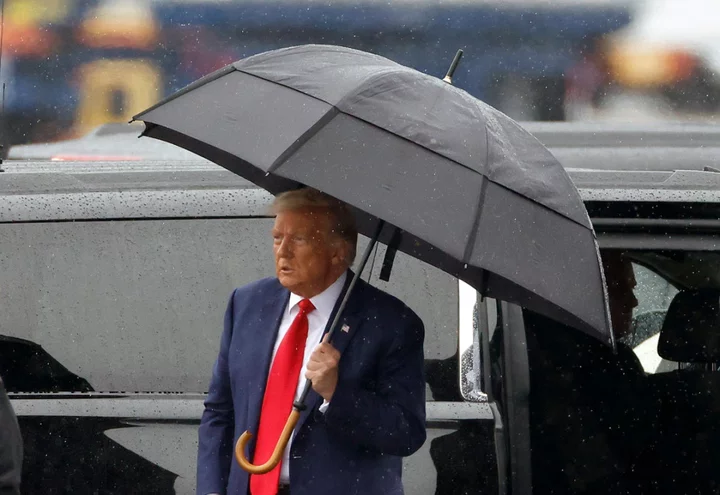
Trump angrily rails against ‘filth’ in Washington DC after arraignment on 2020 election conspiracy charges
Before departing from Washington DC after being arraigned on four federal charges, former president Donald Trump gave quick remarks in which he claimed the capitol had “filth”, “decay” and “broken buildings”. Mr Trump made a quick appearance at the nation’s capital on Thursday so he could appear in federal court to be formally charged with four counts related to his alleged efforts to overturn the 2020 election and subsequent January 6 attack on the Capitol. “This is a very sad day for America,” Mr Trump told reporters before departing on his private plane to New Jersey. The ex-president has continuously claimed he is innocent and that the indictment, brought forth by Special Counsel Jack Smith’s investigation, is a politically-motivated action. But unlike his previous post-arraignment speeches, Mr Trump chose to direct most of his statement toward Washington DC’s environment. “It was also very sad driving through Washington DC and seeing the filth and the decay and all of the broken buildings and walls and the graffiti,” Mr Trump said. “This is not the place that I left. It’s a very sad thing to see it.” Mr Trump spent approximately two hours in Washington DC, most of which was spent inside the E Barrett Prettyman Federal Courthouse. The ex-president pleaded not guilty to the four counts he was indicted on; conspiracy to defraud the United States, conspiracy to obstruct an official proceeding, conspiracy against rights and obstruction of, and attempt to obstruct, an official proceeding. The charges stem from Mr Smith’s probe into Mr Trump’s rhetoric in the days leading up to the January 6th attack on the Capitol, including Mr Trump’s false claims of election fraud. The most recent indictment alleges that Mr Trump knowingly spread lies that there was election fraud in 2020 and he actually won. “These claims were false, and the Defendant knew that they were false. But the Defendant repeated and widely disseminated them anyway – to make his knowingly false claims appear more legitimate, crate an intense national atmosphere of mistrust and anger, and erode public faith in the administration of the election,” the indictment reads. Despite the serious allegations, Mr Trump’s post-arraignment speech made little mention of the implications he is facing. “When you look at what’s happening this is a persecution of a political opponent. This was never supposed to happen in America. This is the persecution of the person that’s leading by very, very substantial numbers in the Republican primary and leading Biden by a lot so if you can’t beat them you persecute them or prosecute ‘em,” Mr Trump said before departing on his plane. Read More Live updates: Trump pleads not guilty at arraignment in 2020 election case What is an arraignment? Here’s what to expect following Trump’s indictment Trump pleads not guilty to federal conspiracy charges in plot to overturn 2020 election Trump rails against ‘filth’ in DC after arraignment on election conspiracy charges Trump ‘irked’ that arraignment judge didn’t call him ‘Mr President’ Former Trump spokesperson sheds light on Melania’s absence from his arraignment
1970-01-01 08:00
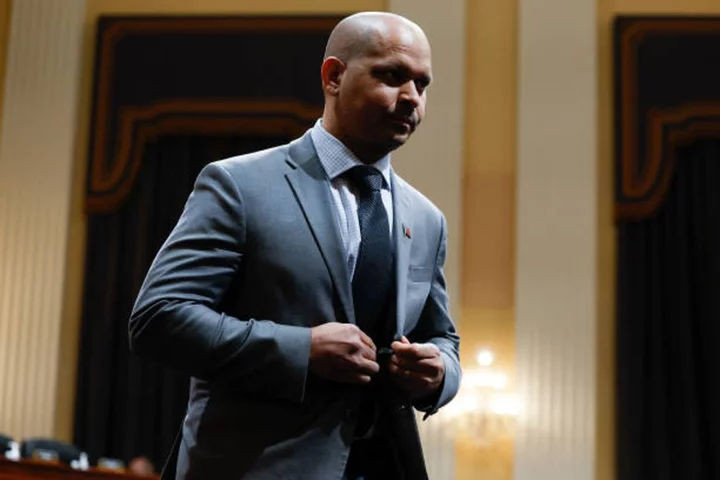
Capitol police sergeant injured on Jan 6 praises Trump arraignment: ‘Our democracy is worth fighting for’
When Donald Trump pleaded not guilty after being arrested and arraigned on Thursday for conspiring to overturn the 2020 presidential election, among those present in the courthouse was Aquilino Gonell. A US Capitol police officer, Mr Gonell resigned in December last year as he sought to continue recovering both “physically and mentally” from the trauma of the Jan 6 insurrection that occurred in 2021. “Our Democracy is worth fighting for,” the retired officer injured in the Capitol riot wrote on X (formerly Twitter) soon after the proceeding. “Not prosecuting is far riskier than having no consequences for the alleged power grab attempts. Justice and the rule of law must win for our democracy to survive,” he said of the former president who was indicted Monday on four charges as part of special counsel Jack Smith’s investigation into the alleged conspiracy surrounding the events from 6 Jan Capitol riot. Describing the incident, he wrote, “[As] Capitol Police sergeant, I found myself defending everything I sacrificed, and our very own democracy when it was threatened by an all out assault by a mob.” “As an American, the events on January 6 were shocking,” he said. “I was attacked by more than 50 people (one way or another) that I know of. I have given testimony to the congressional committee, investigators, prosecutors and the court.” He had earlier last year, while providing testimony before Congress, compared the experience of being at the Capitol on that day to his experience in Iraq with the US Army. “On January 6, for the first time, I was more afraid working at the Capitol than during my entire Army deployment to Iraq,” he had said in prepared remarks. “In Iraq, we expected armed violence, because we were in a war zone. But nothing in my experience in the Army, or as a law enforcement officer, prepared me for what we confronted on Jan 6.” He told legislators how he was punched, pushed, kicked, shoved, sprayed with chemical irritants and “blinded with eye-damaging lasers” – injuries that required multiple surgeries and a six-month medical leave. In a poetic twist of fate, Mr Trump’s latest arraignment brought him to the exact same courthouse where hundreds of people have been tried, convicted and sentenced to terms in prison as long as 18 years for charges in connection with the Jan 6 insurrection. Mr Trump, the man Liz Cheney once credited with having “assembled” and “summoned” members of the mob, is now the latest defendant among them. Mr Gonell was present in court along with two other police officers – Daniel Hodges and Harry Dunn – who defended the Capitol that day. They watched the former president’s arraignment from inside the court. Taking stock of the location’s symbolism where Mr Trump was produced, Mr Gonell said: “The same court in which hundreds of rioters have been sentenced. It’s the same court former President Trump is being arraigned in today for his alleged involvement before, during, and after the siege.” Read More Live updates: Trump pleads not guilty at arraignment in 2020 election case Trump pleaded not guilty. The stakes couldn’t be higher Trump was told not to talk to witnesses in 2020 election conspiracy case. That could be a challenge. Trump appears to stumble over his name and age at arraignment Watch view of the Capitol on day Donald Trump scheduled to be arraigned Trump supporters falsely claim former president faces death penalty
1970-01-01 08:00
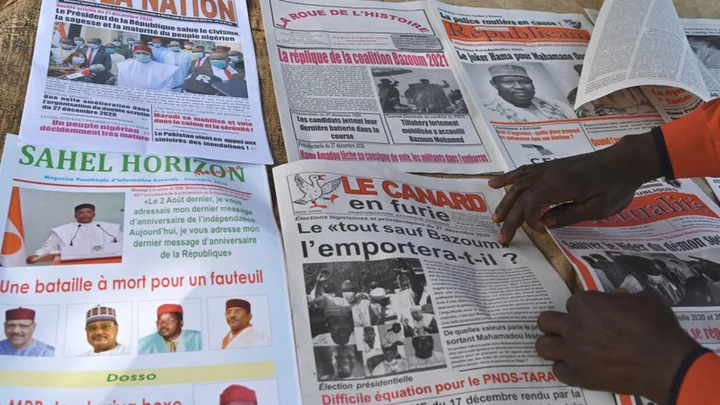
Niger media guide
An overview of the media in Niger, including links to broadcasters and newspapers.
1970-01-01 08:00

'Turns out it's NOT the end of an era': Taylor Swift extends tour
Taylor Swift has announced additional dates on her 'Eras' tour, with the concert series finally calling to Canada for six shows in Toronto, as well as new gigs in Miami, New Orleans, and Indianapolis.
1970-01-01 08:00
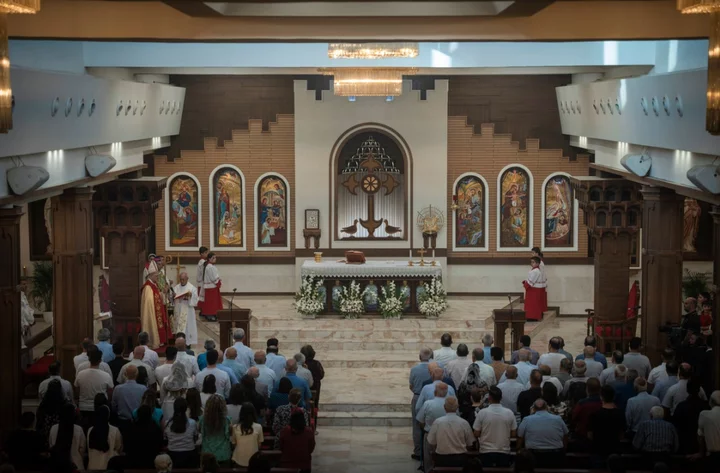
A feud between a patriarch and a militia leader adds to the woes of Iraqi Christians
Iraqi Christians have struggled since the Nineveh plains, their historic homeland of rolling hills dotted with wheat and barley fields, were wrested back from Islamic State extremists six years ago. Although the threat from IS has receded, some towns are still mostly rubble. There are few inhabited homes or basic services, including water. Many Christians have given up and left for Europe, Australia or the United States. Others are trying to follow. Now the shrinking religious minority that was also violently targeted by al-Qaida before the rise of IS has been rocked by yet another crisis in the form of a political showdown between two influential Christian figures — a Vatican-appointed cardinal and a militia leader, with land and influence at the core of the drama. The dispute adds to the woes of Iraqi Christians, who have often felt sidelined in the political order. A 2021 visit by Pope Francis provided a glimmer of hope that quickly faded. Meanwhile, the Christian population has plummeted. The number of Christians in Iraq today is estimated at 150,000, compared to 1.5 million in 2003. Iraq’s total population is more than 40 million. The political tension rose last month when Cardinal Louis Sako withdrew from his headquarters in Baghdad to northern Iraq’s semi-autonomous Kurdish region after Iraqi President Abdul Latif Rashid revoked a decree recognizing his position as patriarch of the Chaldeans, Iraq’s largest Christian denomination and one of the Catholic Church’s eastern rites. Sako said he will not return to Baghdad until his recognition is reinstated. His departure added to the feeling of helplessness among many Christians. “Of course, this affects us psychologically,” said Sura Salem, a Christian social activist in Baghdad. “You feel like a family without a father.” Christians staged a small protest in Baghdad over Sako’s departure, but Salem said “listening to the voice of the Christians is the last concern” of Iraqi leaders. Sako blames a campaign against him by Rayan al-Kildani, a fellow Chaldean Christian who formed a militia called the Babylon Brigades that fought against IS and still patrols much of the Nineveh plains. The group is affiliated with the Popular Mobilization Forces, a collection of primarily Shiite, Iran-backed militias. Its associated political party, the Babylon Movement, won four of five Christian-designated seats in Iraq’s 2021 parliamentary elections. Sako believes al-Kildani is angling to take over Christian endowments and properties. Al-Kildani has made similar allegations about Sako. “I have stood up to this militia and others who wanted to take over what rightfully belongs to the Christians,” Sako told The Associated Press, days after arriving in Irbil to a warm welcome from Kurdish officials. “Of course, no one defends Christians other than the church.” In Baghdad's upscale Mansour neighborhood, al-Kildani was busy building political alliances. On a recent afternoon, several couches in the palatial lobby of his party headquarters were occupied by well-dressed women wearing hijabs, beneath a painting of the Last Supper and a portrait of al-Kildani. One by one, the women entered the inner office, each one emerging with a gift bag. One of the visitors explained that they were political candidates interested in running on al-Kildani’s list in Mosul in December’s provincial elections. After the visitors departed, a smiling and courtly al-Kildani made his entrance. He insisted that he had no role in the withdrawal of the patriarch's decree and dismissed allegations that he was seeking to seize church lands. “I am the son of this church, and it is my duty to respect it, but it is unfortunate when a clergyman accuses someone without proof,” he said. Al-Kildani has accused Sako of selling off church properties, allegations the patriarch denies, and he has filed a lawsuit against Sako alleging slander. But al-Kildani said he is ready to meet with Sako to reconcile. Sako rejected the suggestion. Al-Kildani ”has a militia, and his loyalty is not to the church,” the patriarch said. “He is not a respectable person." The Iraqi president has downplayed his revocation of Sako's recognition as bureaucratic housekeeping, claiming it did not diminish the patriarch’s legal or religious status. The Vatican has remained largely silent. Its embassy in Baghdad said in a statement that the Iraqi Constitution guarantees that the heads of churches can administer church properties. A senior Vatican official, who spoke on condition of anonymity because he was not authorized to comment to the media, said the decree was unnecessary given the constitutional guarantees. He said the Holy See did not want to get involved in the dispute but had invited Sako to tamp down tensions with the Iraqi authorities for the sake of Iraqi Christians. The United States sided with Sako. State Department spokesman Matthew Miller said last month that the U.S. is concerned that Sako’s position "is under attack” by a militia leader who in 2019 was slapped with U.S. sanctions for his alleged involvement in human rights abuses, including cutting off a captive’s ear. Al-Kildani denied the allegations and accused the international community of being ungrateful after his group’s role in the fight against IS. He accused the Kurdish Democratic Party — the ruling party in the Kurdish region and a rival of the Iraqi president's Patriotic Union of Kurdistan Party — and the United States of engineering Sako’s withdrawal from Baghdad for political reasons. For some Christians, the drama is overshadowed by more pressing problems. As Baghdad resident Anan al-Dawi left a sparsely attended Mass on Sunday, her main concern was a recent power outage in the scorching summer heat. She struck a diplomatic tone regarding the feud between Sako and al-Kildani. Although physically absent, she said, Sako “lives in all of our hearts.” As for al-Kildani's group, she said: “I serve the country in my way. You serve it in yours, and they are also serving their country." Back in the Nineveh plains, in the town of Batnaya, patrolled by members of Kildani's militia, Lawrence Sabah owns a small factory where he makes mop handles out of wood imported from Russia. Sabah did not share his opinion on Sako or al-Kildani, but he had other complaints. “There are no services, even the water sometimes doesn’t come, and 70 or 80 percent of the houses were destroyed,” he said. He is hoping to join his parents and siblings, who have resettled in California. Some 8 kilometers (5 miles) to the north, in Kurdish-controlled territory, Raad Ekram owns an electrical supply store in the sparsely populated town of Telskof. When his family was displaced from the village to the city of Dohuk, Ekram believes he got short shrift from both the Iraqi government and the church. “We never saw the patriarch,” he said. “Of course, I don’t accept what happened to him ... and I don’t accept for him to be harmed.” But the patriarch "didn’t do everything he should have done for us.” He is encouraging his children to seek their fortunes abroad. “There’s nothing left in Iraq," he said, "especially for the Christians.” ___ Associated Press writers Nicole Winfield in Rome and Matthew Lee in Washington contributed to this report. ___ Associated Press religion coverage receives support through the AP’s collaboration with The Conversation US, with funding from Lilly Endowment Inc. The AP is solely responsible for this content. Read More Ukraine war’s heaviest fight rages in east - follow live Charity boss speaks out over ‘traumatic’ encounter with royal aide Biden's inaction on death penalty may be a top campaign issue as Trump and DeSantis laud executions On 3rd anniversary, Beirut port blast probe blocked by intrigue and even the death toll is disputed Mega Millions players will have another chance on Friday night to win a $1.25 billion jackpot
1970-01-01 08:00
